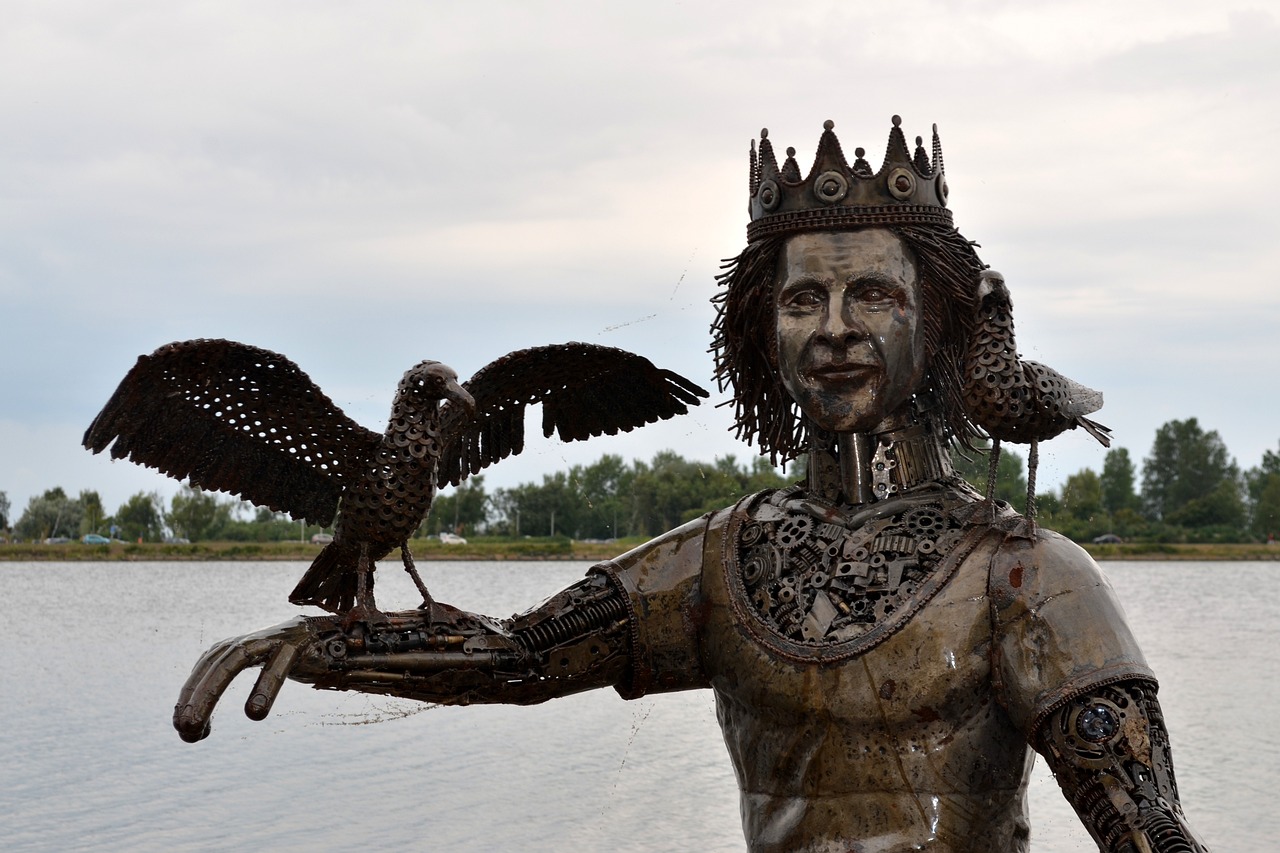Overview
Njord, the Norse deity associated with wind and water, served as the guardian of sailors and fishermen, offering them fortune if they were just. As the chief figure of the Vanir god clan, he led them during the Aesir-Vanir War, eventually joining forces with the Aesir through a truce. Uniquely, Njord was destined to endure the critical events of Ragnarök, eventually being reborn into a new era. This appreciation of Njord was particularly notable among seafarers in Norway, where reverence for him continued well into the 18th century.
Etymology
The origins of Njord’s name remain somewhat ambiguous, though a leading theory links it to a Proto Indo-European term *ner-, connoting strength and health. In Old Norse contexts, this word parallels the name Nerthus, a goddess linked to serenity. Some scholars propose that Njord may have evolved from Nerthus, while others believe that her characteristics were divided among several Vanir deities.
Attributes
As the god of both winds and waters, Njord was inherently tied to the sea. Many believe he resided above the water in a domain known as Nóatún, loosely interpreted as “the place of boats.” This celestial area permitted him to oversee and control natural elements, offering him an advantageous position for his divine tasks.
Family
The specifics of Njord’s parentage are unclear, with some theories suggesting that he simply existed without known ancestry. He entered an unfulfilling marriage with Skadi, a jötunn, yet the bond was marked by distance. Njord had two children, Freyr and Freya, but their mother was Njord’s sister, not Skadi.
Family Tree
Consorts:
Wife: Skadi
Children:
– Daughter: Freya
– Son: Freyr
Mythology
Emerging from Vanaheimr, the realm of the Vanir, Njord was instrumental in the conflict against the Aesir. After the war’s conclusion, he was swapped with the Aesir god Hoenir and held hostage with him by the Vanir to maintain peace. Over time, Njord gained respect among the Aesir, fostering friendships that established enduring harmony.
Njord and the Making of an Unhappy Marriage
Njord’s marriage to Skadi is a significant theme in his mythology. The details of their union are explored in Snorri Sturluson’s Prose Edda, particularly in Skáldskaparmál. Skadi’s outrage followed the death of her father, Thjazi, a cause for which she sought vengeance against the Aesir, including Odin, Loki, and Thor. However, she was offered a chance at peace by choosing a husband from among the gods, who were concealed by curtains. Mistakenly believing Njord to be her desired spouse, Baldur, she selected him, leading to their union.
Njord and the Unhappy Marriage
Fate had not been kind to Njord and Skadi. From the outset, their differing preferences for residence sparked persistent disputes. Skadi wished to dwell amidst the peaks of Thrymheimr, while Njord preferred the tranquil coast of Nóatún. They settled on a trial arrangement where Njord would spend nine days in Thrymheimr, followed by Skadi’s three-night stay at his seaside abode.
Upon concluding their domestic trials, both gods expressed dissatisfaction. Njord bemoaned the desolate highlands:
“Loath were the hills to me, | I was not long in them, Nights only nine; To me the wailing of | wolves seemed ill, After the song of swans.”
Skadi similarly lamented her experience at sea:
“Sleep could I never | on the sea-beds, For the wailing of waterfowl; He wakens me, | who comes from the deep— The sea-mew every morn.”
Ultimately, Skadi returned to her mountainous home, pursuing a solitary existence filled with hunting and exploring, while Njord remained in Nóatún, keeping vigilant over the waters. During his solitude, he fathered children with his sister.
Njord and Ragnarök
The Poetic Edda references Njord in Vafþrúðnismál, stating that he would survive Ragnarök and return to the Vanir:
“In the home of the Wanes | did the wise ones create him, And gave him as pledge to the gods; At the fall of the world | shall he fare once more Home to the Wanes so wise.”
Pop Culture
While Njord’s representation in modern culture is limited, he has appeared in the New Zealand series “The Almighty Johnsons.” Despite not having a wide-reaching influence, his name is still associated with various locations throughout Scandinavia. The term Njarðarvöttr translates to “Njord’s glove,” reflecting his lingering cultural significance.



